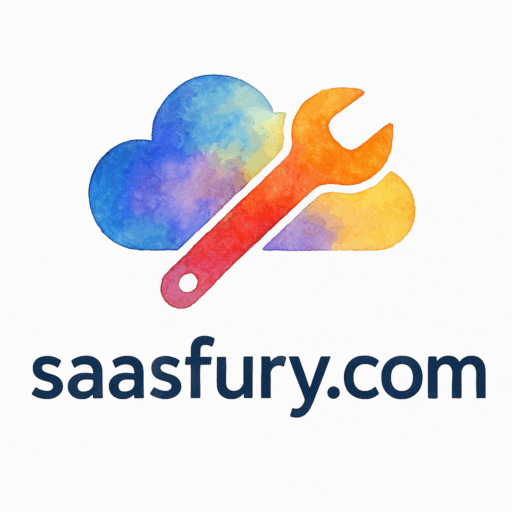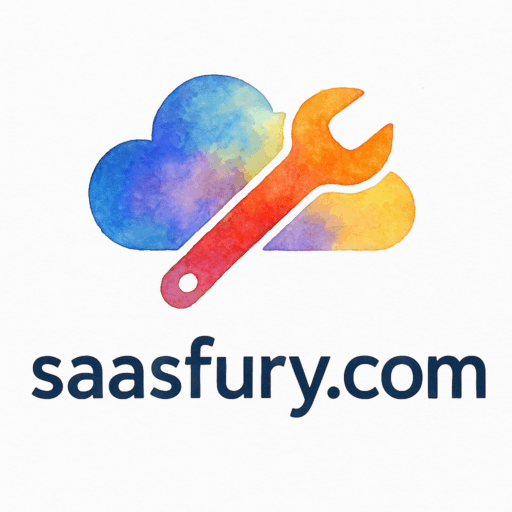Introduction to SaaS Tools in Accounting
The accounting industry is changing fast, and technology is leading the charge. Forget juggling spreadsheets and chasing down receipts—today’s firms thrive with SaaS tools that automate bookkeeping, streamline reporting, and enable real-time collaboration.
If you’re an accountant wondering which platforms are truly worth adopting, you’re in the right place. In this guide, we’ll explore 12 SaaS tool recommendations for accounting firms that can help you run smoother operations, boost efficiency, and impress clients.
Why Accounting Firms Need SaaS Tools
Streamlining Financial Operations
Every accounting firm deals with repetitive tasks—bank reconciliation, payroll, and invoicing. SaaS platforms automate these processes, freeing up time for advisory and consulting. If your firm also offers professional services, SaaS tools give you a competitive edge by improving overall workflows.
Reducing Manual Errors
One small error in financial records can snowball into big issues. By using business tools tailored for accounting, firms can reduce errors and ensure consistency across client data.
Enhancing Client Communication
Clients expect real-time updates. Cloud solutions allow firms to securely share reports and maintain constant communication—similar to how marketing agencies use SaaS to keep campaigns transparent and trackable.

Key Features to Look for in SaaS Tools
Cloud-Based Accessibility
The best SaaS solutions allow access anytime, anywhere—perfect for remote work setups that many small businesses now rely on.
Automation Capabilities
Look for tools that automate repetitive tasks such as tax calculations, expense management, and payroll—features often used across retail and e-commerce industries too.
Security and Compliance
Financial data is sensitive. Prioritize tools that meet compliance standards—similar to how healthcare SaaS tools must protect patient records.
Integration with Other Software
The right SaaS tools should integrate seamlessly with CRMs, banking software, and HR platforms, just as hospitality tools integrate with reservations and payment systems.
12 SaaS Tool Recommendations for Accounting Firms
1. QuickBooks Online
Best for Small and Mid-Sized Firms
QuickBooks Online is a staple in the accounting world. It’s designed for efficiency, making it one of the most trusted SaaS tool recommendations for firms that manage multiple clients.
2. Xero
Great for Multi-Currency and Global Firms
If you handle international accounts, Xero’s multi-currency support and strong integrations make it ideal. It’s widely used in industries like online education, where global transactions are common.
3. FreshBooks
Perfect for Freelancers and Small Businesses
FreshBooks is popular with freelancers and startups. Its simple design makes invoicing and time-tracking a breeze, similar to how creative professionals manage client projects.
4. Zoho Books
Affordable All-in-One Accounting
Zoho Books is great for budget-conscious firms. It combines invoicing, expense management, and even light inventory control—features often used in retail software systems.
5. Sage Intacct
Enterprise-Level Accounting
Sage Intacct is ideal for scaling firms with complex financial structures. Its advanced features support businesses across multiple sectors, from consulting to enterprise-level services.
6. Wave Accounting
Free and User-Friendly
For startups, Wave is a no-cost solution that covers essential accounting tasks. Think of it as the accounting equivalent of free graphic design tools—simple yet effective.
7. Bill.com
Automating Accounts Payable and Receivable
Bill.com automates AP/AR workflows, integrates with leading accounting software, and improves cash flow. It’s widely adopted by firms supporting restaurants and hospitality businesses.
8. Expensify
Expense Management Simplified
Expensify makes expense reporting painless. Employees can scan receipts, and accountants can review reports in seconds—much like scheduling tools simplify team calendars.
9. Hubdoc
Document Management for Accountants
Hubdoc automates document collection from banks, utilities, and vendors. It’s the document hub every accountant dreams of, just as patient records streamline medical practices.
10. Gusto
Payroll Made Easy
Payroll is complex, but Gusto simplifies it with tax filing and employee benefits. It’s perfect for firms offering HR services, similar to hospitality and food service industries needing staff management.
11. NetSuite ERP
Robust Solution for Large Firms
NetSuite ERP is designed for enterprise-level operations. It integrates financial management, reporting, and compliance in one ecosystem—widely trusted across healthcare and wellness and large retail.
12. Karbon
Workflow and Collaboration Tool
Karbon isn’t just for accounting—it’s a workflow platform that enhances collaboration. If your firm handles diverse client services, like language coaches or creative agencies, Karbon helps keep everything on track.
Benefits of Implementing SaaS Tools in Accounting Firms
Increased Efficiency
Automation speeds up workflows, enabling accountants to focus on higher-value tasks.
Better Client Service
SaaS allows accountants to provide real-time insights, much like how omnichannel tools improve customer experiences in retail.
Cost Savings
Many SaaS tools are subscription-based, making them more affordable than legacy systems.
Scalability for Growth
As your client base grows, SaaS tools adapt—similar to scalable e-commerce platforms.
Challenges of SaaS Adoption in Accounting
Data Migration Concerns
Moving from legacy systems to cloud-based SaaS can be time-consuming, but the payoff is worth it.
Security and Privacy Risks
Even though SaaS tools are secure, firms should still practice strict cybersecurity—an approach also crucial in medical SaaS platforms.
Staff Training Requirements
Employees need proper training to fully utilize SaaS features.
How to Choose the Right SaaS Tools for Your Firm
Assessing Firm Needs
Identify your firm’s unique challenges before choosing a SaaS platform.
Budget and ROI Considerations
Weigh the subscription cost against long-term benefits—just like investing in other SaaS recommendations.
Vendor Reputation and Support
Stick with providers known for reliable customer support and frequent updates.
Future of SaaS in Accounting
AI-Powered Automations
Expect AI-driven accounting tools that forecast cash flow and detect risks.
Blockchain for Transparency
Blockchain can provide immutable, transparent records—redefining auditing.
Personalized Client Experiences
Soon, SaaS tools will create client-specific dashboards and reports, similar to personalized creative education platforms.
Conclusion
The future of accounting is digital, and SaaS tools are the key to staying ahead. By leveraging automation, real-time insights, and cloud-based collaboration, firms can scale operations and deliver superior client service. The 12 SaaS tool recommendations for accounting firms outlined here will help you work smarter, not harder.
FAQs
Q1. What is the biggest benefit of SaaS tools for accounting firms?
They save time by automating repetitive tasks and enhancing accuracy.
Q2. Are SaaS tools secure enough for financial data?
Yes—most offer encryption, compliance certifications, and two-factor authentication.
Q3. Which SaaS tools are best for small firms?
Wave, Zoho Books, and FreshBooks are budget-friendly yet powerful.
Q4. Do SaaS tools work across industries?
Yes. From retail to healthcare, SaaS tools adapt to different sectors.
Q5. Will SaaS tools replace accountants?
No—they empower accountants by eliminating busy work so they can focus on strategy.
Q6. How should firms prepare for SaaS adoption?
Start with training, data migration plans, and security protocols.
Q7. What’s next for SaaS in accounting?
Expect more AI, blockchain, and personalized client solutions across industries.

